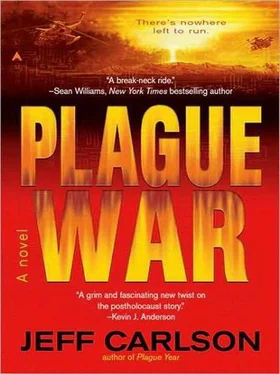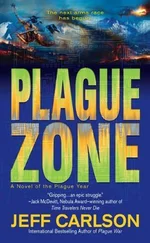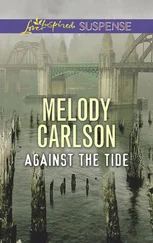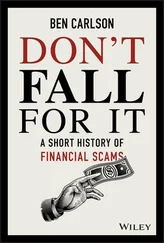Jeff Carlson - Plague War
Здесь есть возможность читать онлайн «Jeff Carlson - Plague War» весь текст электронной книги совершенно бесплатно (целиком полную версию без сокращений). В некоторых случаях можно слушать аудио, скачать через торрент в формате fb2 и присутствует краткое содержание. ISBN: , Жанр: Триллер, на английском языке. Описание произведения, (предисловие) а так же отзывы посетителей доступны на портале библиотеки ЛибКат.
- Название:Plague War
- Автор:
- Жанр:
- Год:неизвестен
- ISBN:1-4362-4416-1
- Рейтинг книги:3 / 5. Голосов: 1
-
Избранное:Добавить в избранное
- Отзывы:
-
Ваша оценка:
- 60
- 1
- 2
- 3
- 4
- 5
Plague War: краткое содержание, описание и аннотация
Предлагаем к чтению аннотацию, описание, краткое содержание или предисловие (зависит от того, что написал сам автор книги «Plague War»). Если вы не нашли необходимую информацию о книге — напишите в комментариях, мы постараемся отыскать её.
Plague War — читать онлайн бесплатно полную книгу (весь текст) целиком
Ниже представлен текст книги, разбитый по страницам. Система сохранения места последней прочитанной страницы, позволяет с удобством читать онлайн бесплатно книгу «Plague War», без необходимости каждый раз заново искать на чём Вы остановились. Поставьте закладку, и сможете в любой момент перейти на страницу, на которой закончили чтение.
Интервал:
Закладка:
Negotiations with the Americans had begun months ago, still in the heart of winter. Everyone was aware of what the spring thaw would bring — new ‚ghting, new horror — and the Russians were both distributed badly and surrounded everywhere. Let the Afghanis, Chechens, Turks, Kurds, Jordanians, Syrians, Lebanese, Palestinians, and Iraqis battle among themselves. The Russians had bargained their way out, offering their veteran armies to India in exchange for a sliver of real estate in the Himalayas as a buffer against the Chinese.
That would be a brutal ‚ght itself, of course, but with only one front instead of twenty. Their hope was to establish a stalemate, a cold war with entrenched borders. But to get there, they needed many more planes and fuel.
The United States had been spared as always by its geographical isolation and, ironically, by the fact that the plague broke loose in California and spread across North America ‚rst. They only had themselves and the Canadians to save as the rest of the world stayed back. Other countries waited and hoped, and then it was too late. Even close allies like the British, with no high ground of their own, had been forced to airlift themselves into the crowded war in the Alps after the nanotech was suddenly everywhere.
There were a few other somewhat calm zones. In fact, most of the South Pole was safe. Antarctica had endless ranges and plateaus above ten thousand feet. The freezing weather also came with low pressure fronts, leaving vast, high stretches of ice that were often free of the plague. But it was just ice. There was nothing to sustain anyone there.
Greenland took in some of the Norweigans and the Finns and their militaries, establishing a separate peace. The survivors out of Australia joined with New Zealand, and Japan still held a few peaks at the heart of their island.
Elsewhere the ‚ghting was mixed and savage. In Micronesia, millions of people fought for a handful of island peaks. The entire population of Africa tried to shove up onto Mt. Kilimanjaro and the very few other high points on the continent even as the Israelis airlifted south into Ethiopia and burned clear several peaks for their own.
Ulinov often wondered if the Russians should have planned to run farther themselves, but it was hard. They’d wanted to stay close to their cities, their industrial base, their military stockpiles — and they were not without experience in ‚ghting on Muslim land. He knew they were using their few remaining jets and helicopters to scavenge beneath the barrier, desperate for weapons and food.
The weight of it was like hundreds of years pressing down on him, millions of lives, the history of an entire nation. His people had been pushed to the last extreme. Their existence itself was at risk. There were still more than ‚fteen million of them alive, but unless the ‚ghting saw a dramatic turnaround, they would be lost, utterly gone except perhaps for a small collection of slaves and a few scattered souls like himself, bred out in a generation. And here he sat in his plush chair with a Coke.
“What we need is everybody on the same page,” Kendricks said, making an open gesture with one small hand. “We need to work together if we’re ever going to get things straight again. Right now it’s up to India to make the right choice. We’ve told ’em that.”
“And what did they say?”
“Well, they’re playing hardball. They think they’re doing enough by giving you people some land, and that’s a good deal for you. Sure it is. Them, too. But what about us?” Kendricks tipped his head forward, bringing the peak of his hat down in an aggressive posture. “What do we get for all those pilots and planes and the guns we’ll bring over? Maybe even some food. Why are we sending our boys all around the world when we’ve got a whole stack of problems of our own?”
“The nanotech,” Ulinov said, like a good pupil.
“Exactly. That’s it exactly.” Kendricks smiled. “India’s got some good folks and they’ve got a lab full of gear or two. But they’re exposed. The Chinese could ruin what they’re doing at any time, and they’re way behind what we’re doing here anyway.”
“So you consolidate their labs with yours.”
“Yes. It’s too hard to do everything on the radio and there’s no way we’re going to keep †ying planes back and forth. It’s just smart. It’s win-win.”
“Then you are making progress with R—” He didn’t want to say Ruth’s work . “With the nanotech.”
“Yes. I think I can tell you we’re getting close to something that’ll protect us all — us and our allies. I mean below the barrier. We can change the whole planet.”
“A weapon?” Ulinov looked at Schraeder, but the general’s expression betrayed nothing.
Kendricks frowned before making his face smile again. “People have been talking, I guess,” he said. “I know you’re in the radio room a lot.”
Did he expect names? Someone to punish? Ulinov would give him that, if he wanted. “A new plague is what they say.” Ulinov shrugged. “Talk on the street. Everywhere. They say it’s a new plague that works above ten thousand feet, but controlled, like a gas.”
Kendricks just shook his head.
“They say it goes away and the land is good,” Ulinov said, shifting cautiously in his chair. He did not want to play his next card…to take this gamble…but it felt good to show strength. “We know it exists,” he said. “We know you used it on the White River.”
“What are you talking about?”
“We still control a few satellites,” Ulinov said. When he imagined them, it was always with pride and hurt — his countrymen in dirt holes and ice caves, using laptops and a ragtag collection of transmitters to control impossibly complex machines beyond the sky, machines that were now beyond their ability to replace. “We have high-gain video of the assault,” he said. “We have analysis of how the nanotech…how it consumes.” The Americans called their weapon the snow†ake, perhaps because of the way it reacted to living tissue, swirling and clotting. “We know its dispersal rate. The heat it gives off. We have even been able to determine its shape .”
“The assault was necessary,” Schraeder said.
“Yes.” Ulinov would not argue that. “But we wonder if the Chinese also had a satellite in position. There has been some speculation if they could use that information to advance their own nanotech.”
The rest didn’t need to be said out loud, the array of threats within those words, not if Kendricks understood that the Russians could choose not to protect India after all. Kendricks had to realize that the Russians still had the option of making a very different deal to save themselves, trading their muscle for real estate as shock troops against India instead of for it. They could sell their satellite videos to the Chinese as a good part of that bargain.
Ulinov knew this proposal had already been made. Envoys had gone not only to the Indian Himalayas but also to the southern range to bow before the Chinese premier.
Kendricks responded easily. “I’ve got my doubts that anyone could learn much from a few pictures,” he said with a shrug. “Either way, that’s just all the more reason for India to help us out. Our side’s got to keep the upper hand if everyone doesn’t want their babies to grow up talking Chinese.”
“Before we ‚ght them we want the snow†ake,” Ulinov said, and he smiled at the small shock in their eyes. Orbital analysis was one thing. That he also knew the name of the nano weapon revealed a much deeper level of espionage, and that he would be so bold about it should indicate something even more worrisome to them: a willingness to ‚ght.
Kendricks remained cagey. He scowled at Ulinov, but his voice was steady. So were his eyes. Nothing would shake the man. “Well, the problem there is we’re having a hard time manufacturing enough of the nanotech,” Kendricks said. “That’s another reason we need India’s gear.”
Читать дальшеИнтервал:
Закладка:
Похожие книги на «Plague War»
Представляем Вашему вниманию похожие книги на «Plague War» списком для выбора. Мы отобрали схожую по названию и смыслу литературу в надежде предоставить читателям больше вариантов отыскать новые, интересные, ещё непрочитанные произведения.
Обсуждение, отзывы о книге «Plague War» и просто собственные мнения читателей. Оставьте ваши комментарии, напишите, что Вы думаете о произведении, его смысле или главных героях. Укажите что конкретно понравилось, а что нет, и почему Вы так считаете.












